Creating a ripple effect in Thai Education
“Everyone can change the education system.”
This sentence may sound beautiful in theory, but practically, it might not be as easy as it implies. Especially, we can claim that when we look from the perspectives of former fellows like Sky, Fluke, and Phoom, who have worked as school teachers for 2 years.
This sentence may sound beautiful in theory, but practically, it might not be as easy as it implies. Especially, we can claim that when we look from the perspectives of former fellows like Sky, Fluke, and Phoom, who have worked as school teachers for 2 years.
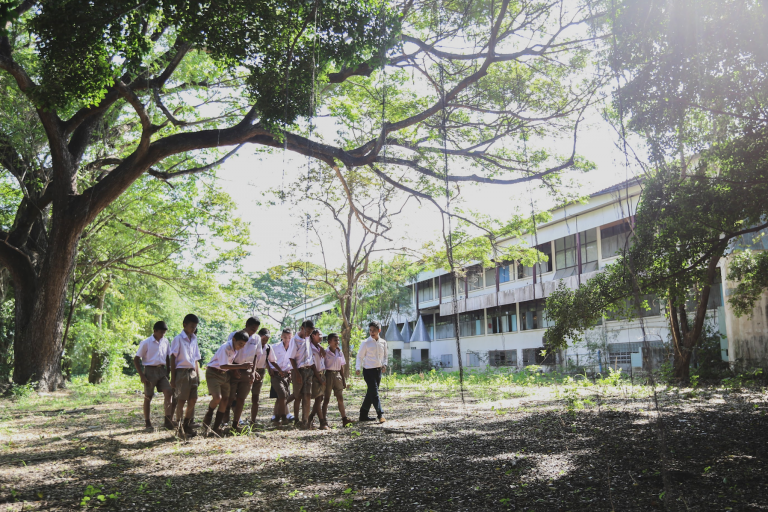
For them, creating an impact on a larger scale may require more than just starting with themselves, and something that can make a significant difference is working at the policy level that affects the lives of people across the country.
Achieving Dreams in Expanding Impact Through Policy
For Sky, who works on proposing policies to drive the government, the driving force behind his policy-making career is his desire to expand the impact of his work. Currently, he is a policy researcher on education reform at the Thailand Development Research Institute (TDRI).
“When I taught in the school, the impact is limited only to the classroom, and I was not able to fully scale the effects. Even if I have a cool teaching method, it couldn’t be scaled”.
Phoom, an analyst and project manager for research and development of teachers’ production, joined the Equitable Education Fund (EEF) because he believed in investing in education.
“I am an economist who loves money. When I heard about the Fund, it got my attention right away because I believe that investing in education is worthwhile. I want to help educational organizations work more smoothly and effectively. I want to make sure that when the Fund invests in various research projects, it can invest in the right places and achieve the desired results.”
Fluke is currently an education researcher at the Office of the Basic Education Commission (OBEC). He is responsible for the budgeting and academic development of Schools in the Royal Initiative Project. He said that he wants to work on problems that teachers cannot solve.
“In the work of a teacher, we can only solve problems at the micro level, helping only a few people, maybe 100-200 people. But policies have a greater impact, such as making thousands of students able to continue their education. The impact is much greater, and it is work that I am more proficient in.”
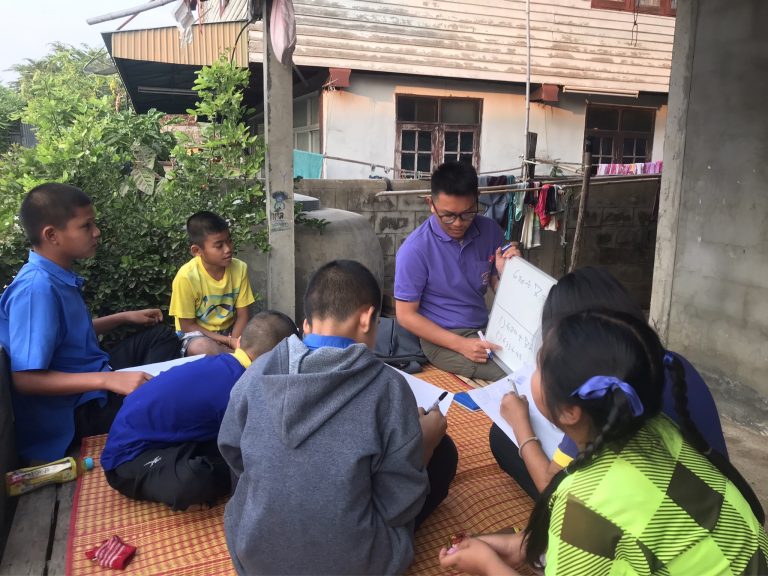
Positive Discovery that Ignites the Path Forward
When asked what impressed them regarding policy work, Fluke’s answer may be a good reflection of the big-picture work they are doing.
“What surprised me was that when there were orders from the policymakers, the school could do it right away without going through many processes. For example, once a school was lacking a water supply, and when the policy level asked them to fix it, the school had water to use immediately. I’m happy to see the impact of my work”
Sky shared his impressive discovery about the work environment.
“When I participated in academic activities and met with various stakeholders in the Ministry of Education, I found many good things and interesting practices. I met many people with great ideas, a clear focus on achieving tangible results, and diverse ways of solving problems. These things made me let go of my ego and preconceptions.”
“For example, at one point in time, society had issues opposing the consolidation or closure of small schools. Once I saw the process behind this policy, I realized that the reason for consolidation or closure was due to the high cost of maintaining the schools, and there were many things that were not worth the cost. This eye-opening experience allows me to engage with the more realistic way of thinking.”
Starting with an Individual, but with Government Support
When digging deeper into the idea that was trending in society at one point, which was ‘if we want to solve social problems, we need to start with ourselves,’ all three of them gave notable opinions:
Sky said that this idea is rational to some extent, but the government must also listen to the people. “I think this idea makes sense to some extent. Everything must start with an individual, but it only works when everyone starts together. This is because policies must start with proposals, and the system itself is also crucial as it must accommodate the public’s participation in policy development.”
At the same time, Phoom also has a similar idea, which is focusing on starting with oneself and taking responsibility. “Starting with oneself is important like the saying ‘be the change you want to see’. It would be great if everyone had agency and could determine themselves, but that’s not the whole picture. Systemic factors certainly have an impact. For example, if the system is not good, it becomes an obstacle, preventing the adoption of better approaches or change from happening.”
Fluke responded to this question by saying he disagrees with the statement “if you want to solve social problems, start with yourself.” “I think that if we focus only on the individual, we won’t have the courage to talk about the structure or dismantle it because people’s behaviors and ways of thinking depend on the structure. The truth is that change cannot happen from one person alone. It can only happen when many people come together.”
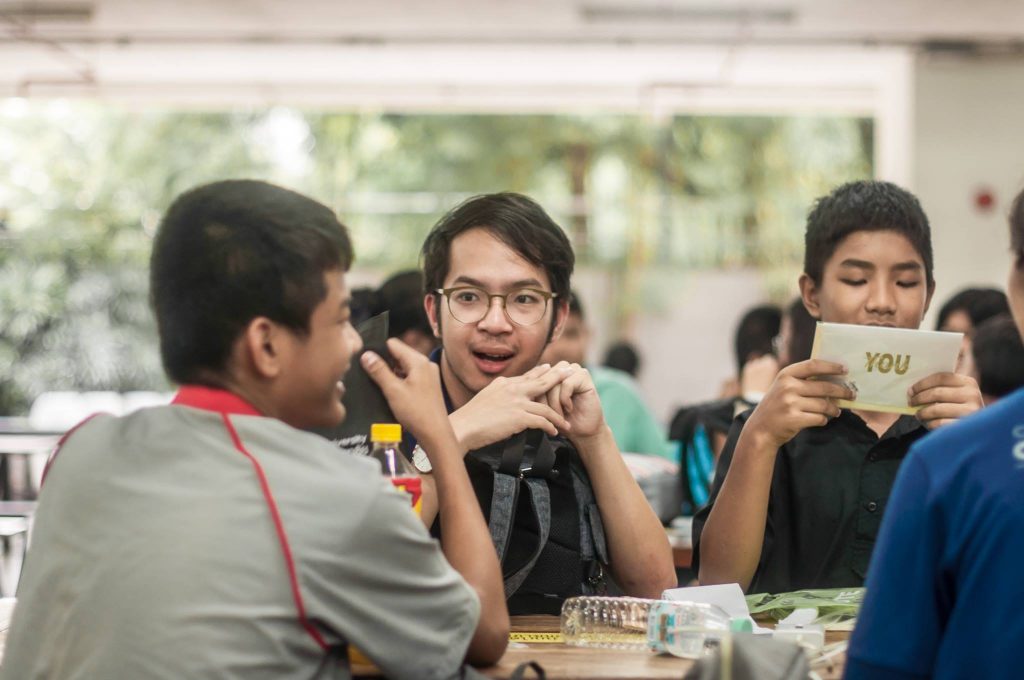
The Superpower of Those Striving for Education
When asked what they were most proud of in their work, the faces of the three individuals – Fluke, Sky, and Phoom – lit up immediately.
Sky took a moment to think before answering, saying, “What I am most proud of is developing proposals from the real needs of people in the area and creating policies at the local level.” “For example, in Rayong, there was a problem where schools didn’t know the academic performance of their students. We helped them develop tools to measure student performance. Although this tool may not have been successful, it led to a direction on how to solve the problem in the future.”
Fluke shared two things he was proud of, the first being his role as a follow-up committee of policies for the Bangkok education system. His work allowed more than 5,000-6,000 students who did not have access to the fund of EEF to access it. The second was taking students from various provinces to a field trip in Bangkok. “I took students from many provinces such as Nan, Satun, Kalasin, and Sakon Nakhon on a field trip in Bangkok, which inspired them to continue their education in universities in Bangkok.”
As for Phoom, he spoke about his pride in developing international cooperation in his organization. “I’m the person who initiated the cooperation between EEF and the Organisation for Economic Co-operation and Development (OECD). This led to active teacher development. In addition, many communications and data preparation I did helped us gather resources. For example, we were able to raise billions of baht in funding.”
After more than an hour of interviews, it seemed that all the alumni still had stories to share, but we have to end the conversation with one question that everyone took time to reflect on: “If you had one superpower to change anything in Thai education, what would you change?”
Fluke: “I would make other agencies outside the Ministry of Education able to manage education themselves, such as local communities, NGOs, or homeschooling.”
Phoom: “I want schools to be able to choose their own teachers and allocate resources freely.”
Sky: “I want to reform the teacher system, enabling it to have a more flexible employment system and allocate more resources to schools, allowing them to have more autonomy to act for themselves”
These are just a few of the Alumni who are driving the change with real aspirations. There are many more alumni of Teach For Thailand who are working to drive education in various areas, such as being leaders in schools or social innovation. All of these come together as one objective: to ensure that one day every Thai child will receive a quality education and be able to determine their own future, according to the vision of Teach for Thailand.
Phoom Pentrakul (Phoom)
Teach For Thailand Alumni, Cohort 4
Teach For Thailand Alumni, Cohort 4
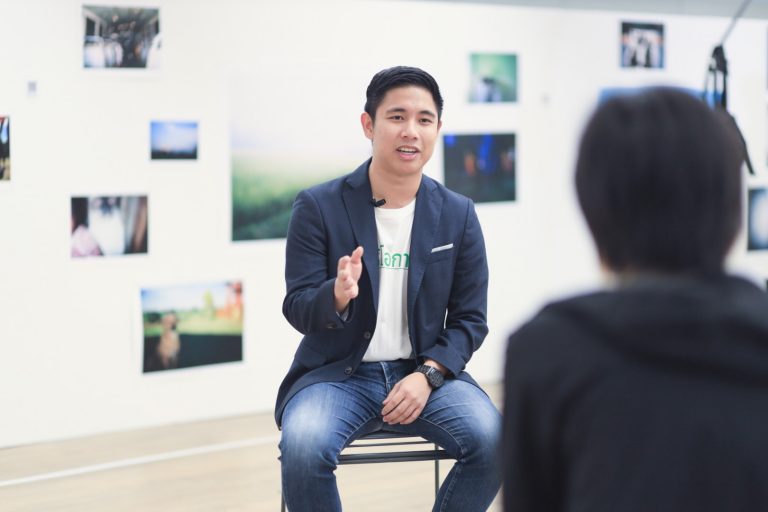
Analysts and coordinators of the teacher development project – the Education Equality Fund (EEF)
Phoom aims to expand his impact on a national level by working in collaboration with the government. This is the reason why he decided to join the EEF.
He worked with the EEF for 5 years and is responsible for overseeing several projects in education policy. He works closely with the Ministry of Education and the government as he intended. He can provide advice on policy issues from the perspective of someone who truly understands the problems.
In addition, he has also been appointed as a committee member for promoting equality and equitable education opportunities under the Ministry of Education. Currently, he’s a Harvard Kennedy School candidate (Master in Public Administration, class of 2025).
Thunhavich Thitiratsakul (Sky)
Teach For Thailand Alumni, Cohort 2
Teach For Thailand Alumni, Cohort 2
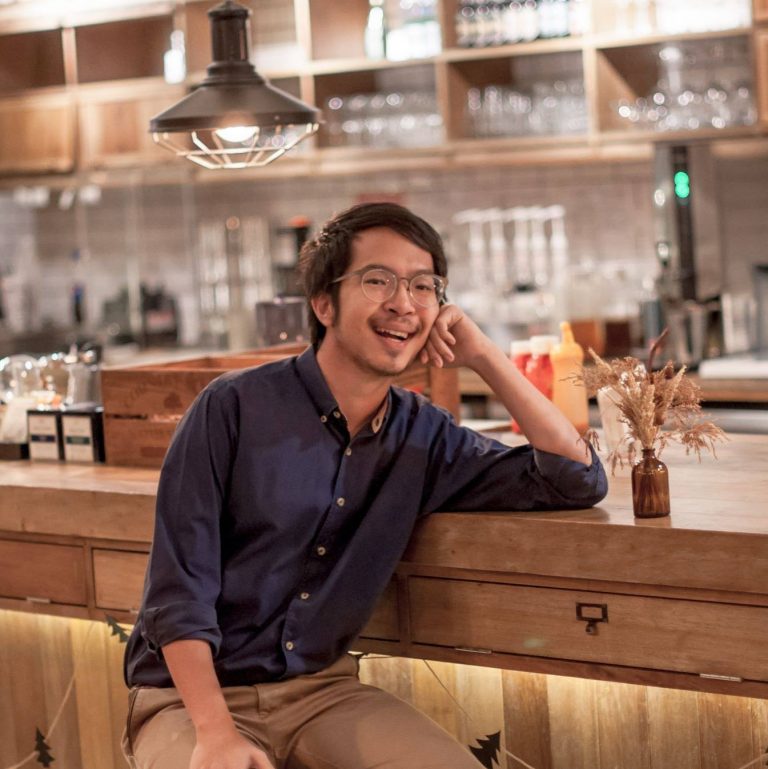
Researcher in Education Reform Policy – Thailand Development Research Institute (TDRI)
Sky is one of the alumni who is interested in policy-level change. This has led him to work as a researcher under the innovation area project currently.
Sky believes that research on the educational innovation area is one way to reform the Thai education system by unlocking regulations, creating mechanisms for freedom, and providing opportunities for people in various regions to participate and reflect their needs to manage education that meets the needs of learners. This can lead to good policy practices that can be scaled up to schools nationwide.
Jirawut Jitjak (Fluke)
Teach For Thailand Alumni, Cohort 6
Teach For Thailand Alumni, Cohort 6
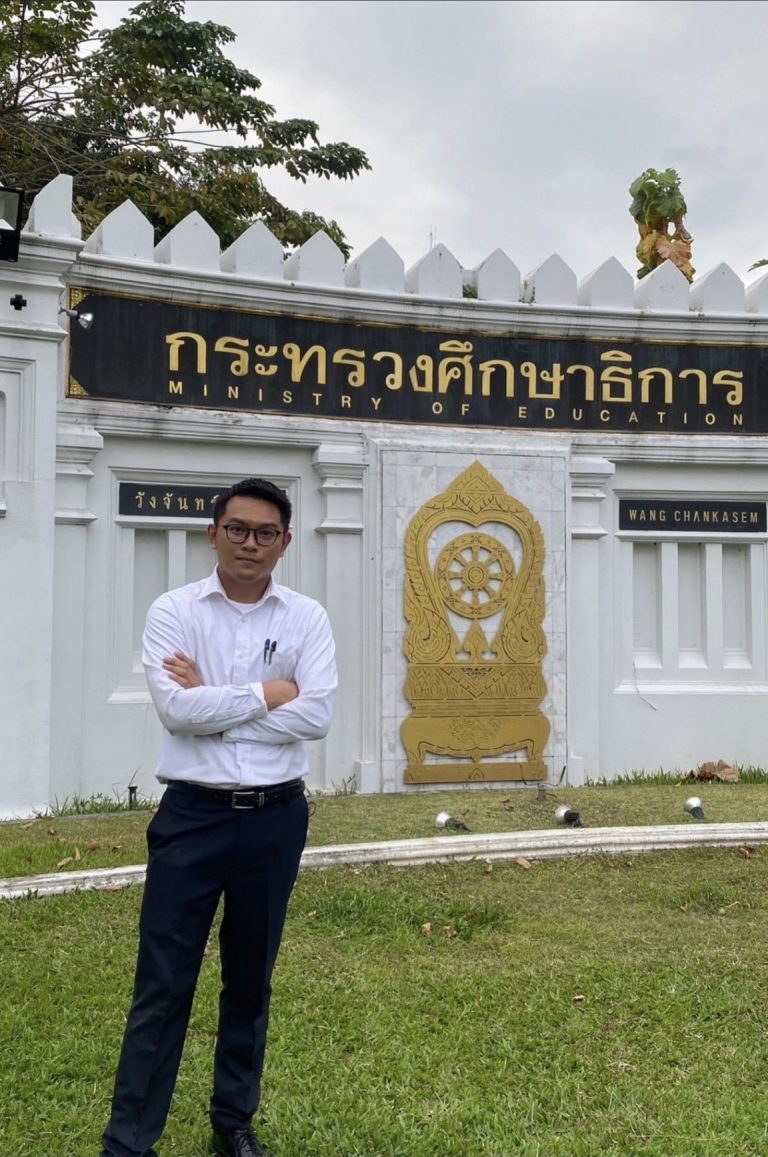
Educational researcher – Basic Education Commission Office
Fluke is an alumnus who is interested in promoting equal and quality education at the policy level. This interest led him to work as a policy consultant for a political party on education issues. His view is that if we want to create a long-term change, we need to be involved in driving the issues that impact the system, projects, and policies. This should help develop a quality and equal education system.
Currently, Fluke is a civil servant as an educational researcher under the Basic Education Commission Office. He is responsible for overseeing and developing approximately 500 Schools in Royal Initiative Project nationwide.

